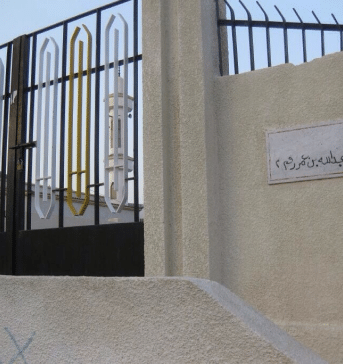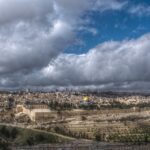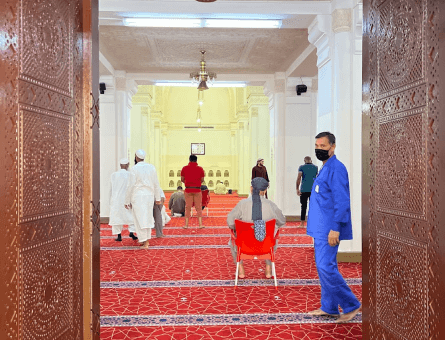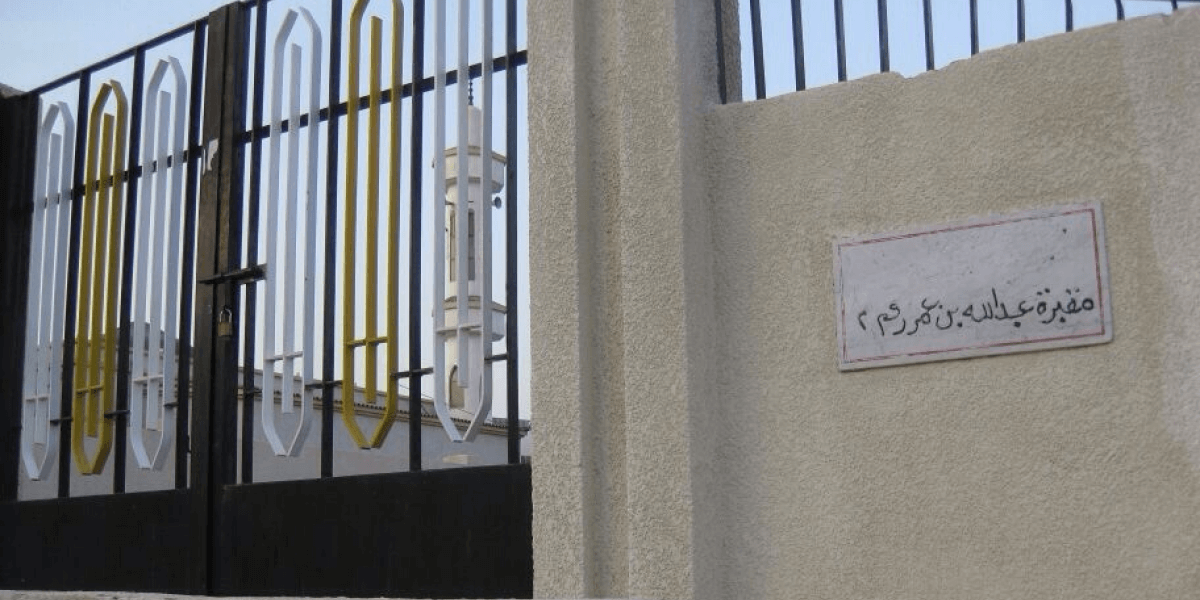Grave of Abdullah Ibn Umar (RA)
Abdullah ibn Umar (RA) was a venerable companion of Prophet Muhammad (PBUH) and the son of Umar ibn al-Khattab (RA). Abdullah ibn Umar (RA) was one of the most virtuous and knowledgeable companions of Muhammad (PBUH).
Throughout his life, Abdullah ibn Umar (RA) followed the example of Prophet Muhammad (PBUH) and narrated his many hadith for generations to come.
In spite of being born and raised in the most influential families of Makkah, what elevated Abdullah ibn Umar (RA) to this exalted level wasn’t his lineage, but rather his diligence, deeds, and sincerity for Allah SWT.
Abdullah ibn Umar (RA) passed away at the age of 87 and is buried at a location known as Fakh. Next to it is a mosque named Masjid Abdullah Bin Umar.
Here is everything you need to know about the grave of Abdullah ibn Umar (RA).
Who Was Abdullah Ibn Umar (RA)?
 Abdullah ibn Umar (RA) was the son of Caliph Umar ibn Khattab as well as a companion and brother-in-law of Prophet Muhammad (PBUH). Abdullah ibn Umar (RA) was born in the city of Makkah in 613/614 CE. He accepted Islam when he was just 10 years old and migrated to Madinah with his sister, Hafsa (RA), and his father.
Abdullah ibn Umar (RA) was the son of Caliph Umar ibn Khattab as well as a companion and brother-in-law of Prophet Muhammad (PBUH). Abdullah ibn Umar (RA) was born in the city of Makkah in 613/614 CE. He accepted Islam when he was just 10 years old and migrated to Madinah with his sister, Hafsa (RA), and his father.
Abdullah ibn Umar (RA) is one of those who reported the most hadiths of the Messenger (PBUH) of Allah SWT and was an early jurist of Islam.
From a young age, Abdullah ibn Umar (RA) devoted himself to following the Sunnah of the Prophet Muhammad (PBUH) and supplicating to Allah SWT. Abdullah ibn Umar (RA) used to pray late at night, performing Salah, weeping, and seeking the forgiveness of Allah SWT.
The Messenger (PBUH) of Allah SWT once said, “Abdullah is a righteous man if he only prays more at night.” (Sahih Bukhari: 7031)
The house of Abdullah ibn Umar (RA) was located at the east of the mihrab of Masjid al Nabawi, such that the window opposite the Qiblah wall opposite Rawadah Mubarak would open in front of the door of Abdullah ibn Umar (RA)’s residence.
Even though Abdullah ibn Umar (RA) was a fearless warrior, he did not fight in the Battle of Badr or the Battle of Uhud because he was young at the time.
However, when the time to fight for Muslims in the Battle of Trench came, Prophet Muhammad (PBUH) called Abdullah ibn Umar (RA) and asked him to be a part of the Muslim army.
The Battle of Trench was a 30 day long siege that Muslim army strategically fought against 10,000 Qurayshi confederates.
Abdullah ibn Umar (RA) was a beloved companion of Prophet Muhammad (PBUH). He used to scrutinize and observe every action of Allah SWT’s Messenger (PBUH) and practice it in the same way that the Prophet (PBUH) did.
For example, if Abdullah ibn Umar (RA) saw Prophet Muhammad (PBUH) praying in a specific spot, he would perform Salah in the same place.
The wife of Prophet Muhammad (PBUH), Aisha (RA) remarked about the devotion of Abdullah ibn Umar (RA) to the Messenger (PBUH) of Allah SWT. She said, “There was no one who followed the footsteps of the Prophet Muhammad (PBUH) in the places where he alighted as did Ibn Umar (RA).”
Even after the passing of Prophet Muhammad (PBUH), Abdullah ibn Umar (RA) spent his life preaching the teachings of Islam and narrating the hadith of the Prophet Muhammad (PBUH) for generations to come.
Where is Abdullah Ibn Umar’s (RA) grave located?
The grave of Abdullah ibn Umar (RA), son of the second caliph Umar ibn al-Khattab (RA), and a close companion of Prophet Muhammad (PBUH), lies in the corner of Khalid al-Walid Mosque in the city of Homs, Syria.
The corner of the Masjid also comprises a small sarcophagus wrapped in green cloth, marking it as the tomb of Abdullah ibn Umar (RA). All that is known is that Abdullah ibn Umar (RA) was tragically killed at the age of 87 in the Battle of Siffin, and was buried within the premises of Khalid al-Walid Mosque.
Summary – Grave of Abdullah Ibn Umar (RA)
The grave of Abdullah ibn Umar (RA) is believed to be situated in the city of Homs, Syria. Abdullah ibn Umar (RA) was the son of the second caliph, Umar ibn al-Khattab, and a close companion of Prophet Muhammad (PBUH).
Born into one of the most influential families in Makkah, Abdullah ibn Umar (RA) migrated to Madinah with his father and sister. In Islamic history, Abdullah ibn Umar (RA) has great authority in Hadith and Law and is renowned for his neutrality towards the Muslim factions engaged in the first-ever civil war (656-661).
Explore The New Pilgrim App
The Ultimate App
for Hajj and Umrah!










